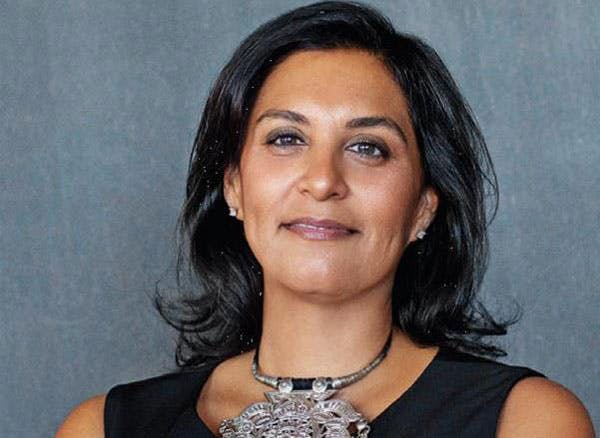The disadvantage of girls and women globally is a well documented, and sad indictment on modern society.
As the World Bank’s 2012 World Development Report on Gender Equality and Development found, there are 31 million school-age girls who will never be educated. Annually there are 4 million “missing” women – namely the number of women in low and middle-income countries who die relative to their counterparts in high-income countries.
Beyond these facts, globally there remains an average wage gap of 20 percent, alongside significant gaps in labour force participation.
At the very core of this entrenched disadvantage, the systematic exclusion of girls and women from education and the broader labor force translates into inefficient allocation of labour, a less educated workforce, lost productivity, and consequently diminished progress in economic development.
Running alongside each G20 summit, the annual gathering of central bank and government leaders of the world’s 20 biggest economies, the G(irls)20 is a complementary summit which ensures girls and women aren’t left off the G20 agenda.
Its purpose is to mobilise the private, social, profit, academic and government sectors to present achievable recommendations to G20 Leaders. The summit culminates with a communique which provides a blue-print to the G20 Leaders on how best they can utilise one of the world’s best and untapped resources: girls and women.
Five years ago when Canada hosted the G20, Toronto-based Farah Mohamed, the President & CEO of the G(irls)20 Summit, was determined to see her then brand new idea be a success.
With a career background in social entrepreneurism, Mohamed wanted to bring together private investment and corporate social responsibility programs to support a summit for 20 girls from the G20 countries. With four successful summits now under her belt, G(irls)20 is a not for profit organisation that has grown to include representation from the European and African Unions, Afghanistan, Pakistan and the MENA region (Middle East and North Africa).
As Australia prepares to host its first G20, Mohamed tells Dynamic Business that while the G(irls)20 will be running at the end of August, it’s actually a program that extends far beyond summit alone.
“On a year long basis we choose these girls and then invest in them quite heavily around skillset development, and then of course we bring them to Australia, and then support them to set up their own initiative when they go back home.
For 10 years, Farah worked closely with some of Canada’s most senior politicians, was awarded the Queen’s Jubilee Medal, and was named as one of the Top 25 Most Influential Women in Canada by Women of Influence. While her organistion is Canadian-based, it’s very much globally active.
“We started this initiative the year that Canada was hosting the G20 in 2010, and then we’ve gone to France, Mexico City, Russia and this year of course, Australia,” Mohamed says.
The initiative has already made significant inroads, but Mohamed adds that in an ideal world, she wouldn’t even need this job.
“We’d have girls and women with the ability to pursue whatever opportunity they wished, and have a complete level playing field. But we don’t have that. What we do have though is countries like the G20 block of countries deciding that it’s really important that we grow our economies every single year, and this year the target is 2 per cent.
“If we’re really going to achieve that target, then we have to use all of our human resources. Fifty per cent of our human resources are women. So if you’re serious about growth, you’re serious about political stability, you’re serious about social innovation, you have to utilise everyone who is available. And that’s why we exist.
We say at the very heart of this, we will look at the issues that the G20 leaders are looking at, through the lens of ‘how do you utilise one of the most under-utilised resources’? And that’s why we exist,” Mohamed says.
It’s a tall order, but for Mohamed and her team, the size of the task is approached by aiming to ‘change the narrative’ around women and entrepreneurialism.
“Absolutely it’s a huge task. What we’re trying to do though is to really change the narrative. We hear all these negative stories, but what we want people to do is to pay attention to the positives: namely that the GDP of a country goes up when women are part of the labour force. Women will reinvest 90 per cent of their income in their family and their community, versus the percentage that men spend, which is 30 per cent. We know that companies that have female managers turn a 34 per cent higher profit.
“So we’re bringing these girls together at what is probably the most formative time in their lives. They’re 18-20 years of age, and we’re training these girls around digital literacy, financial literacy, leadership, globalisation – let’s get them ready for the economy that they’re going to be facing. That’s a big differentiator for us. We’re investing in these women, we’re having them tackle global issues, and then we’re having them go back home and start their own initiatives,” Mohamed says.
A self-described optimist, Mohamed is also continually motivated by the sheer innovative thinking she observes in her work with youth. As much as an uphill battle her goals are, she is confident that strategic investments in the leaders of tomorrow will yield extraordinary results.
“I’m one of these people that are really optimistic, and I guess when you spend a lot of time with young people you see how challenged they feel, but how equipped they are to take on those challenges. So I’m optimistic that if we can understand that now is the time to take action on things like youth unemployment, then hopefully that hill becomes even smaller, and every single step forward you’re reducing the challenges that you face.”
The next G(irls)20 Summit will be held in Australia August 25-26, 2014.

